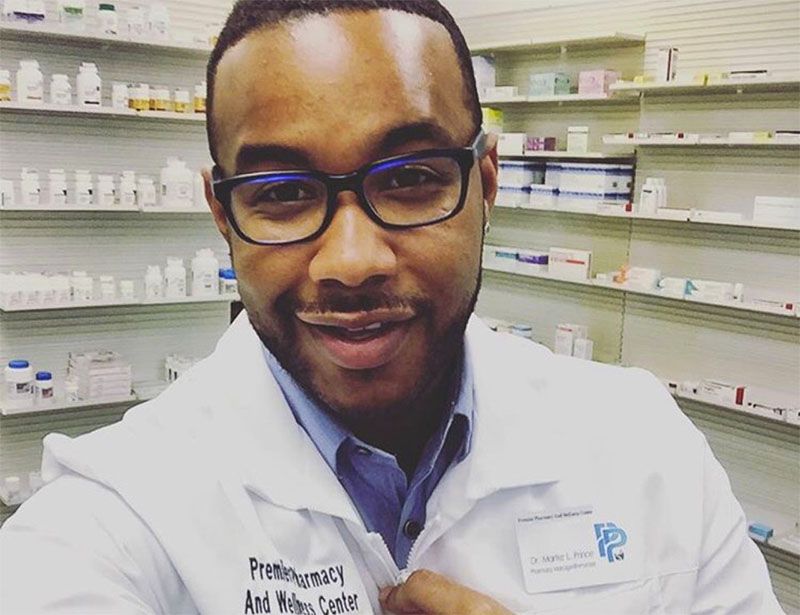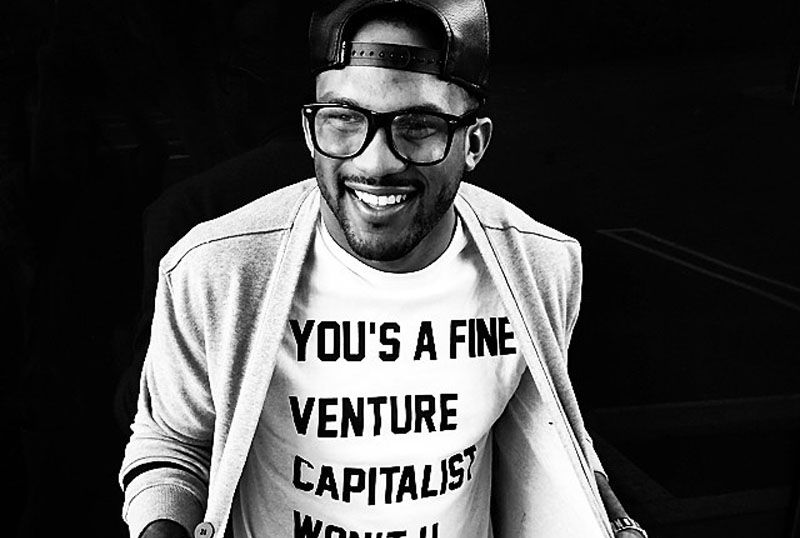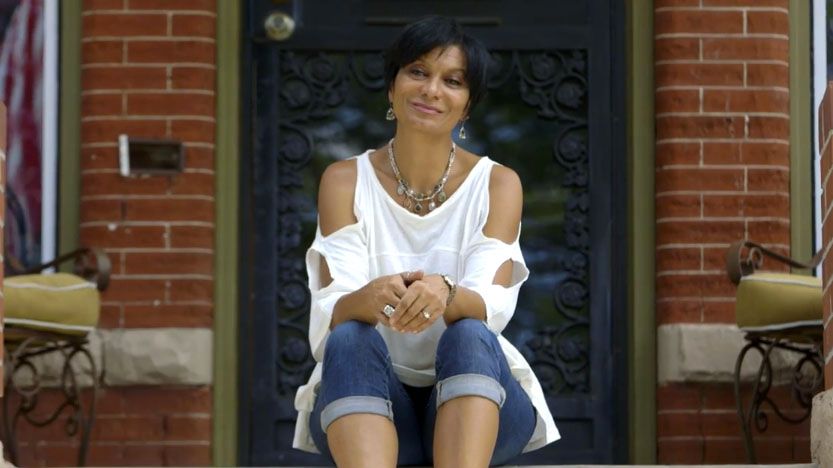It isn't often that you come across a Black entrepreneur carving out their own space in the pharmaceutical industry, so naturally I was instantly intrigued when I stumbled on Dr. Martez L. Prince's story. The 29 year-old pharmacist received his doctorate at Florida A&M University and racked up over 10 years of experience in the pharmaceutical industry before opening the privately funded, Black-staffed Premier Pharmacy and Wellness Center in Charlotte, NC. I recently caught up with Dr. Prince for more on his journey and experience being a young Black business owner in Charlotte, NC.
Mandy: So what were you doing before you started Premier Pharmacy?
Martez: I’m originally from Fort Pierce, Florida and that’s where I began my pharmacy career. I started off when I was 16 at an independent pharmacy that was also Black-owned and it was actually a franchise of a medicine shop. While working as their cashier I just noticed the respect that the patients had for the pharmacist there. From there I wanted to explore that career option more so I applied to FAMU’s Pharmacy school. Right before I graduated I did a rotational series where I did 12 different areas of pharmacy including research on HIV, psychiatric, and emergency medicine. One of them was a rotation with Rite Aid pharmacy which was the community-based and management rotation. Once I got there I realized that one thing I really liked was serving the people, so that’s why I decided to stay with the whole community pharmacy portion of it. I was actually offered a job by Rite Aid Corporation and I worked for them for 5 years straight out of school.
Mandy: What caused you to make the transition from Rite Aid Corporation to opening your own pharmacy?
Martez: They started to change their platform a little bit where I felt like they didn’t really serve the patients the way they needed to be serviced anymore and it became more financial-driven versus healthcare-driven. So I felt like it drained my creativity and I didn’t have any control or power even though I was the pharmacy manager for 4 of the 5 years I worked for them. I didn’t feel fulfilled or connected to the Charlotte community where I relocated after graduation. When the patients were coming into the store we would talk and I could really educate them and those were the only moments I felt like I was really being a pharmacist. Doing what I went to school for.
Mandy: So what do you guys offer at Premier Pharmacy?
Martez: I wanted the patients to get out of my pharmacy the same things they could get from a retail store like personal hygiene items, vitamin supplements, drinks, food, etc. I also wanted to be able to offer the wellness component too because I felt like this was something that would set my pharmacy apart. So with that, we do compounding which is when the medication isn’t available in a certain formulation, we customize it for the patient. Also genetic testing where we check the compatibility of patients with over 200 different medications and they could actually carry that test for the rest of their lives so if they’re ever diagnosed with something, we would already know what medications would work for that patient and what won’t work for them based on their genetic makeup. Also medication therapy management where I sit down with patients and do a complete workup of their medications and try to find things that may be prescribed by different doctors that can be decreased or that may be causing other complications that we can take off board to help that patient in the long run. So we focus on that wellness component and educating the patient to empower them to utilize their medication more effectively.
Mandy: When did you officially open doors?
Martez: We officially opened doors on October 3, 2015. That was a Saturday. I chose October 3rd because I went to FAMU and that was our Founder’s Day. And it just so happened that it fell on a Saturday that year. I thought it would be the perfect opportunity to pay homage to my school that helped me to get to where I am and start something great.

Mandy: I've found that one of the main reasons why a lot of Black people don’t start their own business is because they think it'll take copious amounts of money to get it off of the ground, so how did you go about funding in the beginning?
Martez: Yeah I think that’s definitely a big challenge and I think a lot of times as African Americans we don’t realize the power we have in our own personal network. So for me, I was a very aggressive saver. From the time I graduated I made sure I paid off my debts and freed myself of all credit. After doing the research on what it took to start a pharmacy I got a number in my head and looked through the list of what people were paying for to see what I could do to cut those costs. From there I pulled into my friends and network and told them, “Listen, I know you guys and I love clubbing with you all and sitting in the VIP section and drinking alcohol and things like that, but if we can partake in those kind of activities, why can’t we pull our money together to do something that’s greater than that."
And so my financing came directly from my personal savings and also other friends that I presented to. I presented it to them from the Black Wall Street standpoint. I said, “This is what I need, this is what I have and if you want to invest then this could be your potential return on your investment. Although a pharmacy might not be what you’re primarily interested in, you’re doing something to help the community. Two, you’re getting a financial return back on this that you can take and open up something that you’re more interested in." So it’s a way of us helping each other and rebuilding that Black Wall Street.
Mandy: Love it! That’s amazing that they all saw the vision, believed in you and wanted to help you out financially.
Martez: Yeah and I think it’s all about the fact that we don’t take ourselves seriously at times. Like if you want this, you have to put in the work to do it. You have to pull that research in if you’re going to go present to them. Even when I first presented to my friends I invited them all over for dinner and set it up, got it catered, and got presentation hand outs for everyone. I wanted to show them that this is the same respect I would give a financial institution if I was trying to get their business. And so I need to be just as professional or involved when presenting with them, and from there I think they were able to really gauge my passion and to see that it was going to work for them.
I think a lot of times we often underestimate our network. I had someone who came to me and they were asking questions because they just didn’t understand how I was able to do it. They had pitched their idea to a Caucasian counterpart, and they pretty much stole their idea. I think that happens a lot with us because we go straight there versus checking with our own personal circle first. Even when I was going through the process and I would go down to the Board of Pharmacy and sit in on the meetings. A lot of times I’d see people that didn’t necessarily look like us who were the owners of the store but their pharmacist was an African American, because those demographics are the ones that bring in a lot of the revenue and prescription money. So why can’t we benefit from that AND help our community at the same time?
Mandy: So along those lines, what are your views on Black ownership and how does that community look in Charlotte, NC?
Martez: Charlotte is one of the markets that I would say is growing. I joined the Charlotte Medical Society which is a society of minority professionals. From there I met a Black dentist who had her own practice. We have a lot of barbershops and beauty shops and things like that but not a lot of businesses that could really make a Black Wall Street neighborhood like in the past where everything you need is right there in the community. I would love to see more African American financial institutions who can manage my 401K. I was recently trying to find one and it was really hard to find that. I think that’s one of the things that’s really outstanding about Official Black Wall Street. Just being able to go there and search by category and by area and find these nice polished Black-owned businesses that you can go to. I like the fact that we have this directory now.
Mandy: Yeah, I’m so happy it's becoming a valuable resource to people. It’s also great to hear that that community is growing in Charlotte.
Martez: Right, you know one of the things that really bothers me when it comes to African American-owned businesses is that sometimes we’re afraid to be identified as a minority-owned business and that’s really annoying to me. I don’t think that you necessarily have to place it on your window but there’s nothing wrong with it being known that it’s Black-owned because I think at the end of the day, people who support it are going to support it. Even though my business is African American-owned, the clientele that I service is probably 50/50 because those patients know that it’s Black-owned but they have no problems with that, and those are the people that I want to support me. If you don’t think an establishment is good enough once you find out that it’s Black-owned then I don’t really want your type of business.
Mandy: Very true. I was actually surprised at the number of Black entrepreneurs I'd found who didn't want their business to be labeled Black-owned. So if there are other aspiring Black entrepreneurs who want to open up their own pharmacy in the future, what advice would you give them?
Martez: I would tell them that if you’re currently working for a big corporation, take in as much information as you can. Really get involved and then SAVE. SAVE. SAVE. For the first 6 months of my business I actually didn’t take home money from my company but that was fine with me. My lifestyle didn’t change much. I adjusted my spending but I was still able to live the life that was fit for me because I did such a great job at saving. The most important part is that if you never try, you’ll never know. Jack Eckerd, the owner of Rite Aid or Walgreens’ owner, all of those people started out just like where I am. My dream was to open up a pharmacy that allowed me to educate the community, and then my dream grew to being able to offer that in every neighborhood across the world one day. I’m a spiritual person so if you trust God, it will all work out for you.
Mandy: Are there any other plans for the pharmacy in the future?
Martez: So for the pharmacy we’re really focusing on outlining the operations manual in hopes of being able to allow other people to franchise from the blueprint of the pharmacy. Everyone can open up their own pharmacy but if we all gained power by franchising off of one brand, there would be so much more power behind that and everyone could win even more. Another thing that I also plan to do is to go into business consulting, specializing in pharmacies because of the fact that I just really love research. Although I’ve only been open for 6 months, I pulled the reports and outlined them along with my business plan and I have a real passion for that. There are so many Black pharmacists around the world who would like to learn more about it so I definitely want to do that. When I was doing the research, one of the first things they tell you to do is to take a class, and the class costs $10,000. That can be kind of intimidating when you start thinking “well how much do I REALLY need to start a pharmacy if I have to pay 10 grand just to take this class.” I would like to be able to give people that same kind of information for a lot less and to encourage more people to take that step versus having to go to a weekend seminar with people who don’t necessarily look like them and that are doing this without their heart in it.
For more information on Premier Pharmacy and Wellness Center in Charlotte, click HERE.



